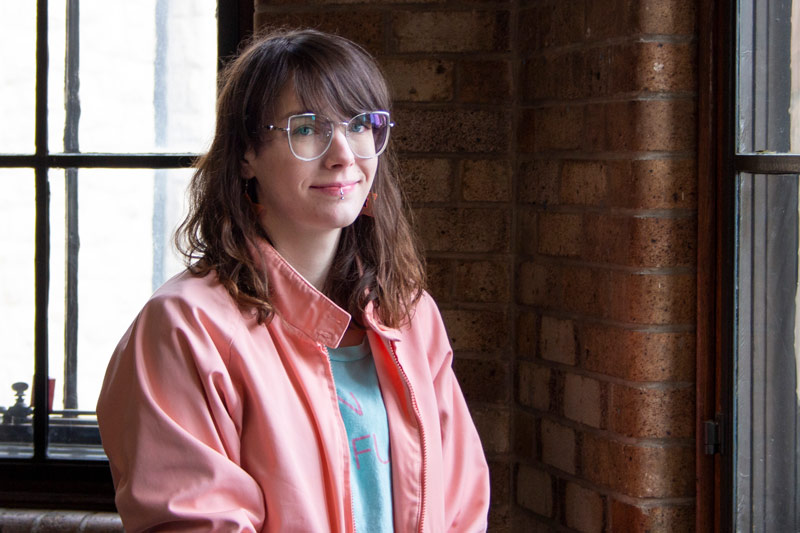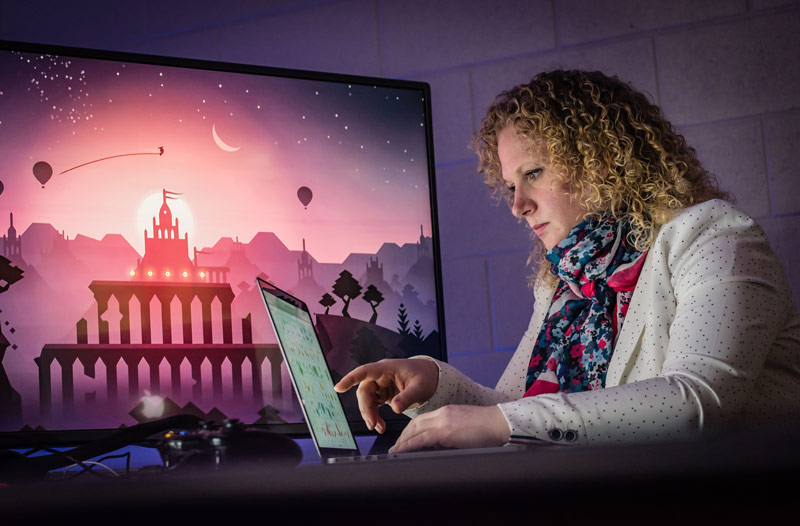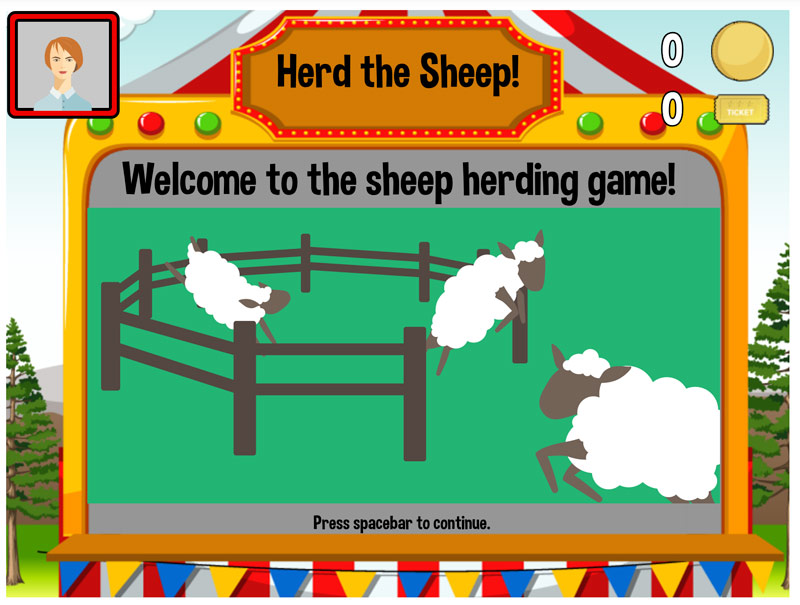
Undergraduate student creates video games for assessing depression
Computer science student Sarah Vedress has been helping create video games modelled after psychological tests
by Noah Callaghan
When computer science student Sarah Vedress first heard about the research being done by Dr. Regan Mandryk (PhD) on assessing mental health using video games, she immediately became interested.
Since last May, Vedress has been helping create video games modelled after psychological tests that can indicate depression as part of a 16-month position in the Computer Science Professional Internship Program (CSPIP).
Vedress, a third-year student in the College of Arts and Science and former president of the University of Saskatchewan Games Club, has always enjoyed playing video games. She saw Mandryk’s research on the subject as pushing the boundaries of the medium.

“When you think about creating games as a career, you don’t think about games research and that was something really appealing to me,” Vedress said. “So many people play them so often, it’s just a really good opportunity to find things out about people.”
Under Mandryk’s supervision, Vedress and other team members are programming and creating artwork for several carnival-themed games designed to gather information on players’ wellness.
The games are based on psychological tests that evaluate thought processes and reaction times to look for indications of depression. Vedress said making tests into games could improve the accessibility of health assessments because video games engage similar problem-solving skills and are played habitually.
“If you can make assumptions of what their mental health is like based on what they do every single day,” Vedress said, “then maybe that can be turned into making recommendations for when they should see a doctor.”
Vedress said she has had an “amazing” time working on this research project in the Department of Computer Science’s Human-Computer Interaction Lab.

“You are given a lot of freedom to work on your own,” she said. “There are so many smart people around that you can really draw from their knowledge.”
As a professor in the Department of Computer Science, Mandryk sees the CSPIP internship as a practical way for students to gain valuable skills as they work on research for assessing mental health with video games.
“This research project is high-risk in terms of it being entirely innovative," Mandryk said, “but also has the potential of high reward in being able to help people who suffer from depression in a truly novel way.”
“Video games are already used by players to manage mental health. Better and more informed game design can actually make this relationship more effective,” said Mandryk.
Mandryk was able to hire Vedress with funds from the E.W.R. Steacie Memorial Fellowship provided by the Natural Sciences and Engineering Research Council of Canada (NSERC) to create digital game technology and solutions for assessing mental health over a two-year period.
“Sarah is a dream. I'm so lucky that she chose to spend her internship in my lab,” Mandryk said. “She is talented, professional, dedicated, smart, creative, analytical and a joy to have in the lab.”

Vedress and her fellow student researcher Janelle Berscheid were recently semifinalists in the NSERC Science, Action! video competition. The pair worked to create a one-minute video summarizing the mental health assessment research for a chance at a cash prize.
Vedress said she looks forward to applying the skills she is developing through the internship after she graduates.
“When it comes to my future, I’m driven by workplaces that have really interesting atmospheres and smart people,” she said. “So as far as what I work on in the future, I’m not really concerned as long as I’m learning every single day.”
(Noah Callaghan is an English student intern in the College of Arts and Science communications office.)

